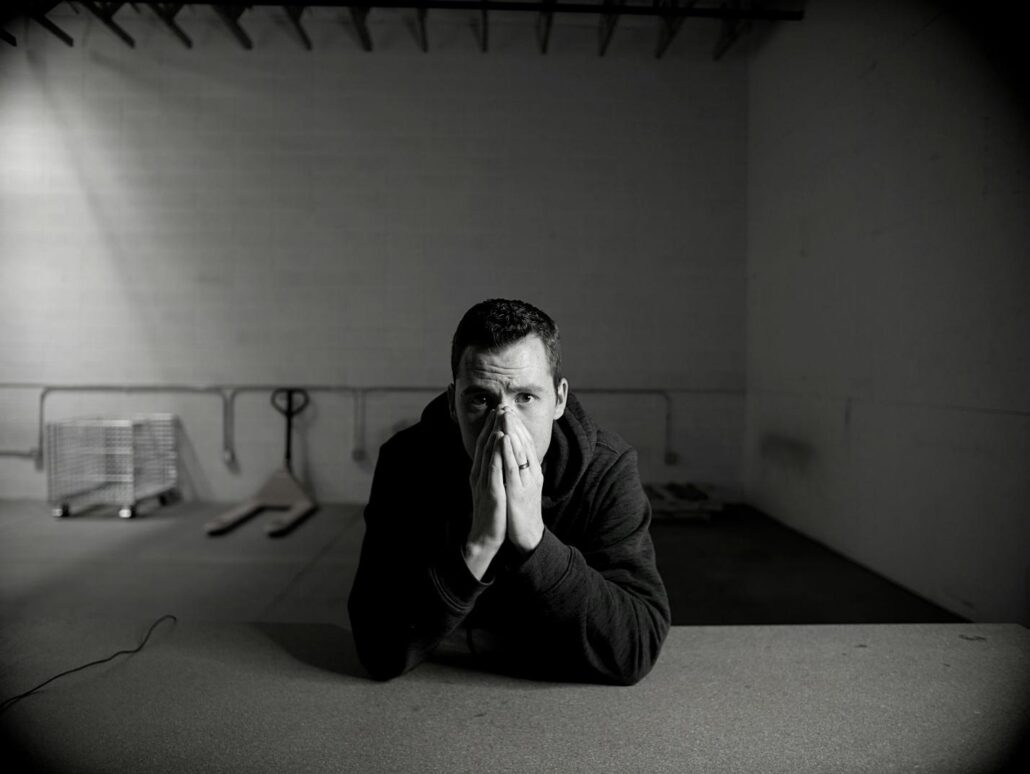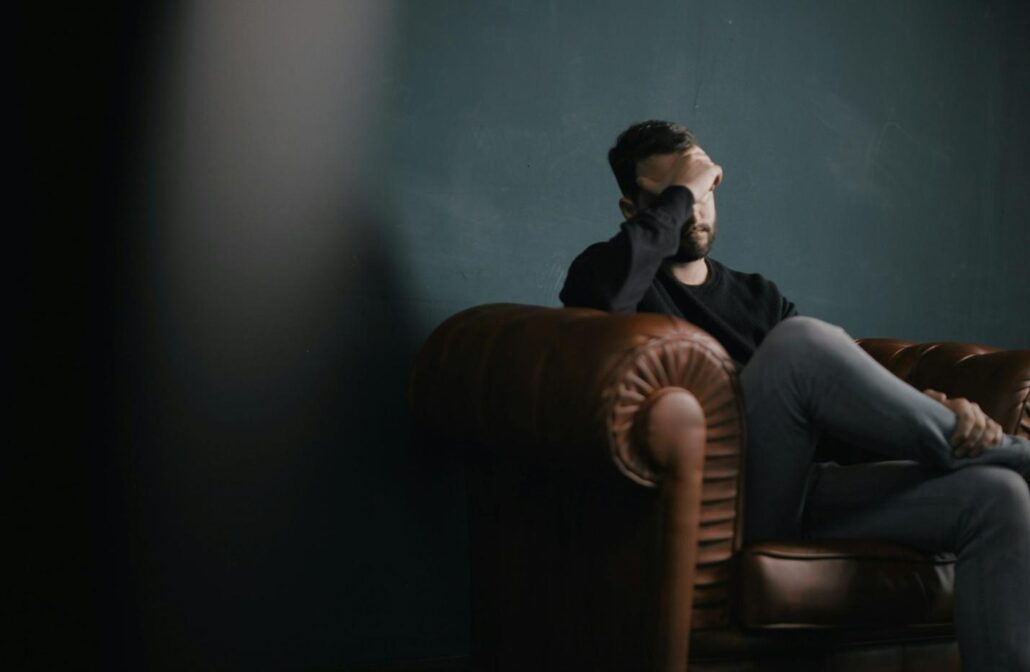Introduction
When someone is struggling with problematic sexual behaviors (PSB), it doesn't just affect them negatively. It hurts everyone around them, especially their family. In fact, it is often the people closest who are hit the hardest and must bear the burden in the dark.
In this article, we unpack family involvement in sexual addiction treatment. But before we begin, be clear: family therapy is not about pointing fingers. It is about finding a path to creating a healthier environment for everyone to heal and grow in.
What is PSB?
Problematic sexual behaviors (PSB) is an umbrella term for a wide range of compulsive thoughts and actions that can vary in severity and impact, such as:
- Excessive pornography use
- Compulsive masturbation
- Infidelity or betrayal
- Engaging in risky sexual behaviors
- Using sexual activities as a coping mechanism
- Online sexual behaviors
- Engaging in voyeurism or exhibitionism
- Predatory behaviors
- Objectifying or dehumanizing sexual fantasies
What makes PSB unique from other types of addiction—like drugs or alcohol— is that it is driven by internal urges, desires, and patterns that are deeply tied to an individual's sense of self. This makes it particularly difficult to untangle and address.
Another aspect of PSB that separates it from other mental health challenges is the stigma that surrounds it. Our society has some very deep-seated taboos about sexuality and what is acceptable, almost instantaneously hurling terms like "sex addict" or "porn addict." For those struggling with PSB, it can feel impossible to speak up, and when they do, it only adds to the shame. This stigma also creates a formidable barrier to seeking help for both the person struggling with PSB and their family members.
Understanding PSB's Ripple Effect
When problematic behaviors come out in the open, the revelation can ignite feelings of betrayal. This can catalyst major emotional fallout that sees anger, confusion, frustration, and sadness take over. This radiate outwards, disrupting day-to-day life in tangible ways:
- Communication breakdowns lead to family members being unable or unwilling to discuss any issue openly.
- Role shifts take place, with the person with PSB withdrawing emotionally and physically, leaving the other partner to take on more responsibilities.
- Financial instability may also arise, especially if a significant amount of money is spent on pornography, escorts, or other sexual activities. This may force the family to make lifestyle changes, like cutting back on essentials. It may also lead to debt.
- Boundaries also become blurred. What once felt like a safe and secure home environment might now feel unpredictable or unsafe. A lack of clear boundaries—whether in physical, emotional, or sexual spaces—only adds to the tension and mistrust in the family system.
- If children sense the tension or witness conflict, they may internalize feelings of insecurity, confusion, or fear. They could start developing anxiety, withdraw socially, or act out in response to the ongoing instability.

Long-Term Effects of PSB on Family
When PSB has been ongoing for years and left unaddressed, the long-term effects on both the individual and their family can be profound—and often lasting.
Partners
For partners, the damage can run deep and shatter self-worth. Imagine the emotional toll of discovering betrayal repeatedly or trying to live with the knowledge of secret behaviors. How does someone regain self-confidence after feeling rejected or lied to by someone they loved and trusted?
Over time, these experiences can lead to trauma responses. One of the most common is hypervigilance—where the partner becomes constantly on edge, always watching for signs of deceit or further betrayal. Even after the person with PSB has addressed their behaviors, the wounds can linger. Just because the behaviors have stopped doesn't mean the emotional damage disappears overnight.
They may develop heightened persistent anxiety, fearing that something is only moments away from going wrong again. There's also the very real possibility of depression that leaves the partner hopeless, exhausted, or disconnected from themselves and others.
Children
For children, the effects are typically more subtle but equally damaging. Parents often assume that children are too young to notice or understand what's happening, but children are highly attuned to the emotional dynamics of their home. If parents are in conflict or one parent is withdrawing emotionally, even the youngest can sense something is wrong, even if they don't fully understand what's going on.
Children are swift to feel the quietness and the lack of connection. This can quickly lead to feelings of unease, fear, and a sense that their world is not as stable or safe as they once thought. This is compounded when parents hide the specifics, and more often than not, children internalize the strain, believing that somehow their behavior or actions are to blame for the discord.
If these issues aren't addressed, children are likely to carry unresolved trauma into adulthood, creating patterns of distrust, difficulty with intimacy, or challenges in handling conflict. Ultimately, this impacts every relationship they have— be it personal or professional.
What is Family Therapy?
Clinically speaking, family therapy is a structured process in which a licensed therapist works with family members to help them address unhealthy patterns and improve communication. The goal here isn't to fix problematic behaviors. Rather, it is to understand how a family can work together and heal as a whole despite the challenges.
In PSB Recovery, family therapy focuses on:
- Rebuilding Trust In Family Dynamics:This is one of the first and most important goals in family therapy. Through honest conversations and transparency, therapy helps the family repair this broken trust one piece at a time.
- Enhancing Emotional Awareness and Regulation:Family therapy also helps each member become more in tune with their emotions and learn how to manage them effectively. This includes learning to express emotions constructively rather than letting anger, hurt, or frustration lead to conflict.
- Clarifying Boundaries Moving Forward:Family therapy helps everyone involved understand and respect each other's limits. Whether it's how to maintain physical or emotional space or how to address certain topics without triggering old wounds, setting clear expectations ensures that all family members feel respected and supported throughout recovery.

Family Therapy: PSB Recovery Interventions
Psychoeducation about PSB and Recovery
A major component of family involvement in sexual addiction treatment is educating everyone about PSB, its nature, and how recovery works. This helps family members better understand what their loved one is going through and why certain behaviors happen. It also provides insight into how the recovery process works, allowing family members to be more supportive in practical ways. For example, learning about the neurobiology of addiction can help a partner recognize that recovery takes time and effort, not just willpower.
Conflict Resolution and Communication Skills
It's crucial to understand that communication isn't just about talking. When words are reactive, defensive, or hurtful, they don't move the conversation forward. Instead, they add fuel to the fire and create even more distance. Effective communication is purposeful interaction where everyone's emotions and needs are acknowledged. This fosters understanding and works toward resolving conflicts, not escalating them.
In therapy, family members develop both effective communication and conflict resolution as they discuss difficult or sensitive topics. They learn how to stay calm, listen actively, and express their thoughts and feelings in a way that respects everyone. This approach helps break the cycle of blame and defensiveness, leading to healthier, more productive conversations.
Trauma-Informed Care for Impacted Family Members
For those who have been directly impacted by problematic sexual behaviors—such as partners, children, or even extended family members—trauma-informed care is also part of family therapy. This approach recognizes the significant impact PSB has and helps family members understand the depth of the emotional wounds. It also provides tools to heal and regain their sense of safety.
For example, Trauma-informed care acknowledges the emotions felt by a partner who has been betrayed by PSB. So, instead of pushing the partner to "move on" or simply "forgive," this approach emphasizes understanding the root of their pain so that healing can take place at its own pace. For children trauma-informed care encourages them to express their feelings in a space where their emotions are validated.
Challenges and Misconceptions About Family Therapy
Family involvement in sexual addiction treatment isn't a walk in the park. It's tough, it's emotional, and it requires everyone to be 100% invested. Some of the most common challenges include:
- Resistance: When someone is caught up in PSB, the last thing they may want is to face the full reality of their behavior in front of their family. They might resist therapy or become defensive, scared of confronting their own issues. On the flip side, family members may also be in denial or unwilling to open up. This resistance can make progress slow, but it's not insurmountable.
- Mistrust or Skepticism: After months or possibly years of deception, it's natural for family members to be skeptical about family therapy's ability to bring real change. They might question whether it's worth their time or even if the person with PSB can truly recover. This mistrust is another major hurdle—but it can be overcome if patience and a willingness to heal are present.
- Emotional Intensity of Sessions: Family therapy can be draining. Emotions tend to fly high, especially when confronting the pain and trauma caused by PSB. This emotional intensity can feel overwhelming, but it's also necessary. Healing is messy, but you cannot avoid hard emotions if you want real progress.
Along with these challenges, there are several misconceptions that may deter families from exploring therapy. This includes:
- "Only the person with PSB needs therapy, not the rest of the family." An all too common misconception, especially among those who do not understand mental health challenges. Of course, this belief falls apart when we see PSB hurt the entire family – partners, children, and even extended family members. Each individual can benefit from processing their own feelings in a safe space and even uncover underlying issues that are weakening the family system.
- "Family therapy just pushes issues under the carpet and says 'just forgive'." This is simply not the case. Family therapy isn't about ignoring the pain or rushing toward forgiveness. It's about understanding the root causes of the problem, processing the emotions, and finding a way forward that works for everyone.
- "It's too late for therapy to help us." No, it's never too late. The idea that change is impossible after so much damage is a myth. While family therapy doesn't promise an overnight fix, it can improve the home with hard work and commitment. At the end of the day, it is the willingness to heal that makes the difference between healing and staying stuck.
- "If we don't agree on everything, therapy has failed." Family therapy is not about reaching unanimous decisions. And the truth is that it's unrealistic to think that everyone in therapy will agree on every issue. Disagreements are natural. What matters is that each person is able to express their perspective, listen to others, and work toward some form of compromise.

Considerations Before Starting Family Therapy
Before diving into family therapy for PSB, it's important to understand that this intervention is not always the right fit for every family. If dynamics are toxic, therapy could do more harm than good. Sometimes, distancing yourself and taking a break from family interaction is the better option as it can reduce triggers.
Family therapy also isn't suitable when serious mental health issues or safety concerns are at play. If there's violence or abuse in the mix, those issues need to be addressed first. In such cases, it's better to talk to a professional who can assess the situation and guide you toward the appropriate support before considering family involvement in sexual addiction treatment.
Find Healing with Professional Guidance
Problematic sexual behaviors don't exist in isolation. They're shaped by—and, in turn, shape—the family dynamics. Hence, if we only address the individual's behaviors without considering the family, the problem is more likely to persist or resurface.
For real, lasting change, recovery can't just focus on the person with PSB or their behaviors. It must extend and address the entire family dynamic. In such a household, where accountability and support coexist, recovery can thrive for everyone.
If you or someone you love is struggling with PSB, you don't have to face it alone. Paradise Creek Recovery offers specialized care for men dealing with PSB in a safe and supportive residential treatment setting. With a team of passionate healthcare professionals by your side, find tailored treatment plans that help individuals and their families heal together.
Take the first step toward a healthier future. Contact Paradise Creek Recovery at (855) 442-1912 or at (855) 442-1912 or email [email protected] to learn more. Healing is always possible—reach out today.










